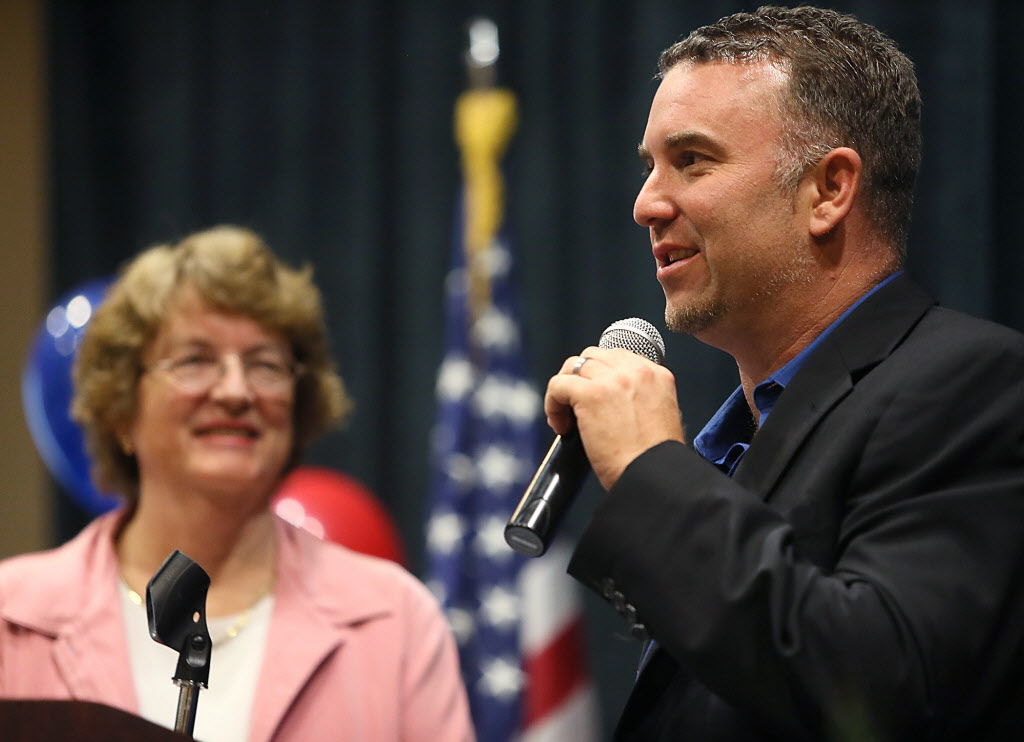The Tucson City Council heard from a divided public on a plan to ask voters in November to change the city election system.
The council directed city staff to use feedback from the public hearing to develop the wording on the official ballot question.
The council will discuss the issue again soon. It is under pressure to decide whether to ask voters to choose a new election system because of a November court decision.
In a 2-1 decision, a panel of three 9th Circuit Court judges ruled Tucson’s election system is unconstitutional because it violates the 14th Amendment and the Equal Protection Clause, known as the “one man, one vote” rule. That’s because it excludes some voters from the primary election based on the ward in which they live.
The city has won a new hearing with a panel of 11 judges in June, which means the November decision is not final. The judges’ decision likely won’t come before the early July deadline to put a question on the ballot.
Some who spoke to the council supported a change.
“Tucson’s City Council election system makes a mockery of ‘one man, one vote,’” said Bruce Dusenberry, a board member at the Southern Arizona Leadership Council, which supports moving to ward-only elections and backs eliminating staggered elections.
Since 1950, more than 33 cases in which the person winning the most votes in his or her ward lost the election because voters in other wards chose a different candidate, Dusenberry said.
Shuron Harvey, speaking for the Pima County Republican Party executive committee, encouraged the council to send the question to voters.
Others told the council not to make changes.
“Please do not vote to weaken our democracy,” neighborhood activist Colette Altaffer told the council.
Former City Council member Margot Garcia encouraged the council to “stick with what we have.”
She said ward-only elections lead to parochialism, with wards competing for funds for pet projects.
She also opposes eliminating staggered terms because it can lead to a lot of newbies on the council at once.
Council Member Paul Cunningham said he prefers the current system, but said he’s willing to let voters decide.
He lost the 2015 general election in his ward but won citywide.
Here’s a look at the system voters could be asked to consider.
- Under a proposal to change the city election system, you’d get a say in who represents your one ward on the City Council and who’s mayor. That’s a change from the current system, in which you get a say in all six city council races, plus the mayoral race.
- Voters would choose from among candidates for City Council in their ward for the primary election and for the general election. The current system has voters choosing candidates in the ward in the primary and then in all six wards in the general. The mayor would continue to be elected by a citywide vote.
- The new system also would eliminate staggered terms. Currently, the mayor and Wards 1, 2 and 5 are elected in one cycle and then Wards 3, 4 and 6 are elected in another cycle two years later. The change would mean one election every four years, beginning in 2021.
To accomplish this, there would be no City Council election in 2019. The 2017 election would continue as usual.
Those in council seats in 2019 would stay until 2021, meaning those elected in 2015 could serve six years instead of the normal four.
To change the City Charter, the ballot question would have to receive more than 50 percent of the votes cast.
A February poll commissioned by the mayor and paid for by the Southern Arizona Leadership Council found 26 percent of voters want the ward-only election system.
Among those who regularly vote in city elections, the number rises to 31 percent.
If the ballot proposition passes, the new ward-only city election system would take effect next year.
If it fails, and if the appeals court reverses its decision, the current system would remain in place.
If it fails, and if the court decision stands, the city election system would change to make all City Council and mayoral races citywide, likely under the guidance of a U.S. District Court judge.
Councilman Steve Ko- zachik encouraged the council to wait for a court decision, even if that means holding a special election next year.





